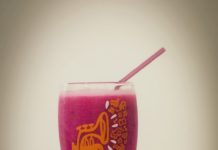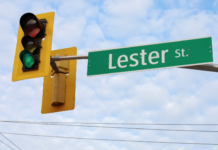Every year, the Hult Prize Foundation hosts a competition where university students around the globe pitch innovative ideas for sustainable startup enterprises to solve the biggest challenges faced all around the world. The winning team will be rewarded $1 million USD, donated by self-made entrepreneur and Swedish billionaire, Bertil Hult.
Previous years’ challenges include the global food crisis, energy poverty, and the clean water crisis. This year, teams will try to create a social enterprise that will help provide early childhood education (ECE) in the urban slums.
In the first round of the Hult Prize, schools across the globe host a local round. Students create teams of three to five and pitch their idea in five minutes to a panel of judges. The judges decide on the winning team, which then advances to a regional competition.
UW held its local Hult Prize competition Nov.14 and Baby Steps Academy (BSA), a startup from UW, won and will advance to the regionals March 13 and 14, 2015.
The BSA team consists of Alisha Karmali, Fardeen Khan, Katerina Szkolka, Shafaq Zakir, and Osama Zidat. The team is very diverse as it consists of engineering, computer science, and arts and business students.
One of the main goals of the Hult Prize is to create a social enterprise that is self-sustaining and, even though there is a prize of $1 million, teams should develop a business model that does not require the cash prize.
The team plans on first implementing their business model in Bangladesh. One of the team members, Fardeen Khan, grew up in Bangladesh so he understands the lack of available ECE in the country.
“I have seen first hand how children growing up in these slums start begging on the streets to survive at very tender ages,” said Khan.
One source of income involves multinational apparel retailers because Bangladesh garment businesses must have day care centres within the factories to accommodate employees with children. Babysteps can complement the existing system and implement their curriculum.
Another source of income will be an internship program for high school students. They will have undergraduate students who are studying ECE hold e-learning lectures for the high school students. Following the training period, the high school students will hold training sessions at the existing garment establishments to teach women from the slums about the curriculum and these women will be the full-time caregivers for the children.
The BSA team will have a long, winding road ahead of them as they prepare for regionals.
“We have a lot of work to do. Our pitch ‘til now was basically a theory. What the judges would want to see is how real this theory can get,” said Khan. “We need to put numbers on the board.”
Regionals will take place in five cities: Dubai, Shanghai, Boston, London, and San Francisco. In each of these regional competitions, 50–60 teams will compete and only one winner will be announced from each.
If the BSA team wins their regional competition, they will get the chance to spend the summer in the Hult Accelerator, a six-week program of intensive entrepreneurial seminars hosted by Hult International Business School.
Afterwards, teams will attend the Clinton Global Initiative in New York and deliver their final pitch for their social enterprise. A panel of judges will determine the winner and the recipient of the $1 million.
Despite winning the local round, the BSA team still needs to gain funds for expenses such as travelling to the regional competition. To help, BSA will be competing for the St. Paul’s GreenHouse $5,000 Social Innovation Fund. The winner will be announced on Dec. 3.































